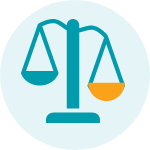

Review process
Your protocol will be reviewed several times during development, both as part of the collaborative writing process and when seeking funding/regulatory approval.
|
Any research into human subjects needs to be approved by whatever committees are required by:
[The Global Health Network Process Map - see 'Submit to Institutional Review Board(s)'] |
Peer reviewA peer review may be performed as a necessary part of a funding proposal; however, even if it isn’t specified as a necessity by the funder, peer review can be sought for further guidance and as additional good practice step [The Global Health Network Process Map - see 'Peer review']. |
|
|
|
Peer-review and publication of research protocols offer several advantages to all parties involved. Among these are the following opportunities for authors:
For an example checklist of the items which might be reviewed during a peer review click here.
|
|
|
Ethics reviewTo adhere to international guidelines and legal requirements research involving human subjects requires independent ethics committee review. These committees are known as Institutional Review Boards (IRBs) or Research Ethics Committees (RECs). Your protocol is one of several documents which must be submitted for review. |
|
'Research ethics committees review proposed studies with human participants to ensure that they conform to internationally and locally accepted ethical guidelines, monitor studies once they have begun and, where relevant, take part in follow-up action and surveillance after the end of the research. Committees have the authority to approve, reject or stop studies or require modifications to research protocols.' World Health Organisation: Research ethics committees Basic concepts for capacity-building |
|


